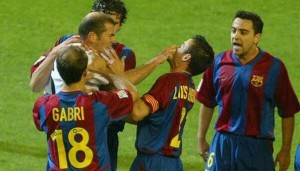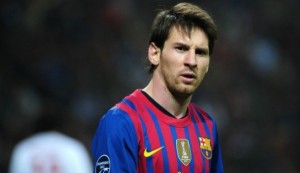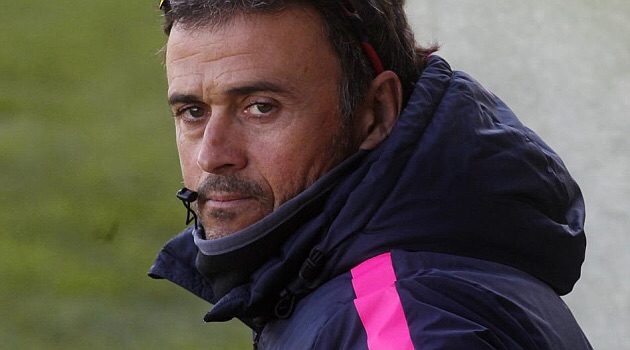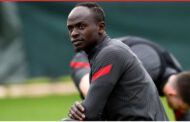Barcelona’s philosophical legacy is weighty, writes Squawka’s Greg Johnson in this exhaustive long-read, but Luis Enrique has broken from it to chart his own course to success.
Replacing greatness is never easy. Replicating it is even harder. Improving upon it? Well, that very much depends upon the standards of greatness that are inherited.
In a similar fashion, winning football matches is hard. Dominating a competition is a genuine feat. Dominating the minds of those who watched you play, and the historical record that they went on to write and inform, is something else entirely.
Luis ‘Lucho’ Enrique’s Barcelona are still two points clear at the top of La Liga after dropping points away to Sevilla and now have a Champions League quarter-final tie against Paris Saint-Germain to contend with. With the first leg taking place in the French capital, the Catalans should hold a decisive advantage in the concluding fixture that will be played in front of their own fans at the 99,354-seater Camp Nou stadium come the end of April. Having scored 52 goals and conceded only nine in 15 home games in the league this season, and scoring eight with only two let through against them in Europe, it’s not an easy fortress to conquer.
The Parisians failed in their last attempt to break down its walls – a 3-1 away loss to Barcelona during the group stage back in December 2014 – and only just got the best of them as hosts, with a 3-2 win at Parc des Princes in September. If these two Group F encounters were to be carried over into the final eight of the competition, the resulting 5-4 aggregate score would see Enrique’s team cruise through into the semis. With the Ligue 1 side set to miss Zlatan Ibrahimovic, Marco Verratti, Thiago Motta and Serge Aurier for at least the first of these their double bill of knockout showdowns with the Catalans, Lionel Messi and co. stand in good stead to advance.
Winning either La Liga or the Champions League, or both competitions, can be considered realistic objectives for Enrique, a year on from a season in which Atletico Madrid and Real Madrid captured each title. And yet even if his Barcelona do manage to secure an impressive double, and continue to accumulate silverware in the years to come under his command, they will still be hard pushed to come close matching up to that which came before them.
Back in 1974, Brian Clough took part in an extraordinary TV special on the evening of his sacking by Leeds United, 44 damned days after he took on the post. Faced with his predecessor and long-time adversary, Don Revie, who had left Elland Road for the England job, talk turned to ascertaining Clough’s motives for taking over the reigning champions of England: a team built in the image of his greatest rival, and whom he despised for their style of play and gamesmanship. He told Revie and the Yorkshire TV cameras what he had wanted: “I want to win the league, but I want to win it better.”
Winning it better is the preoccupation of many a player, manager or fan. Unless you can be the first to achieve something, what else is there to do but top the initial breakthrough in some fashion? Football itself is a constant race for progress and bleeding edge advantages, be it through tactics, training, passion, sports science or some other over-looked angle to exploit.
However, how can Enrique ever hope to “win it better” than Pep Guardiola at Barcelona? Between 2008 and 2012, the current Bayern Munich manager collected seven major trophies – a total that can be doubled if you start counting Club World Cup wins, the UEFA Super Cup and Spanish Super Cup – playing a brand of football that has come to define an era. His team didn’t just dominate the four-year span of his reign as manager but, in the eyes of so many pundits and spectators, proved themselves to be arguably the greatest club side of all-time. For those even more convinced of their primacy and untouchable standing in history, no arguments were necessary.
They seemed to combine the best of the various strands and ideas that preceded them: the Total Football heritage and instinctiveness of Johan Cruyff’s ‘Dream Team’, the over-elaborations of Louis van Gaal and the individualist verve of Frank Rijkaard’s Champions League-winners. It was a continuity that even seemed to touch upon the far earlier work of Rinus Michels – who was Cruyff’s mentor at Ajax and who left Amsterdam for Catalonia in 1971 – and the glorious yet somewhat unfulfilled past of the post-war era, filled with giant figures such as Laszlo Kubala as well as a desire to play a certain brand of free-flowing football that depended upon quality players, combination football and the winning of individual duels.
It was Pep’s Barcelona who were hailed for saving and reinventing the clever and creative central midfielder following a period in which players of their ilk that came under six foot – and those unable to pack a hefty dose of brawn to empower their brains – seemed all but doomed for extinction. A collective focus on possession, pressing and the team almost like a complex, single-cell organism brought it all to life. In the broadest senses, they were able to expand and contract as one depending on whether they had the ball, making the pitch seem very large when they were without it in order to close down isolated opponents, and very small when they were in possession so as to play their quick passing combinations at greater speed, at close quarters.
How Barcelona’s performance score has changed over the past three seasons
The timing and discipline of the transitions between these two states was almost as mesmerising as the results going forward when they did regain control of the ball, which was often. Not only were they always passing and moving up the field, but off the ball, their work rate, organisation and commitment to protocol was uncanny for a team filled with so many of the game’s highest paid and most sought after stars.
Guardiola’s training drills didn’t so much work like clockwork out on the field as render him the master watch-maker. It wasn’t just the shrinking and expansion at will of his side as a unit, but within that overall behaviour, so many intricate sub-systems and highly specific jobs and roles demanded of his players. His side weren’t just a bunch of all-rounder clones thrown together for the sake of some vague sense of universalism but a collection of complementary specialists and “complete players” particular to the Barcelona identity.
Xavi, Andes Iniesta, and of course, Messi himself were all pre-programmed by the club’s La Masia academy to play a certain way, but on top of that came individuals with distinct and sometimes almost mechanical roles to play. Dani Alves was expected to play as a flank unto himself on the right, breaking teams with width and unleashing Messi with one-twos whenever possible. Eric Abidal was developed to fulfil a vital yet often overlooked role that combined the duties of a full-back and centre-back at the same time to allow the backline to shift from a four to a three as team’s flying wing-back on the right surged on.
On the left wing, Pedro epitomised Guardiola’s ideas, especially in his first three years, with his diligence in and out of possession, pressing from the front and forever running to stretch defences and surge through on goal. Though he may have been another product of La Masia, he wasn’t so complete, and played as a kind of function player that allowed the overall machinery of the team to click into life.
Guardiola’s new team are the possession kings of Europe, though Barca aren’t far behind
Even those who did match up to the idealised, all-round image of the perfect Barca players were expected to fulfil a demanding array of duties rather than be set free to do as they pleased. Xavi and Iniesta were expected to be role models both on the ball with their movement and their passing, but they were also required to keep the intensity of the pressing high. Messi was Messi, but whether it was as a goal-scoring wide forward, or in his more enhanced role as a false nine, he was needed to attack certain areas, drag targets out of position and destabilise the shape of the opposition from the front.
It’s probably for the best that Enrique doesn’t seem too interested in winning it better than Guardiola. The players who made up the spine of the team between 2008 and 2012 have aged or lost the zeal required to pull off such a demanding system, that cannot even be attempted half-heartedly.
Clough himself only lasted 44 days at Leeds on his quest to instantly surpass the record he had taken on there. By attempting to force the club to what he perceived to be the next level, he ultimately broke morale and lost the dressing room by appearing to undermine rather than augment their successes. There was a period where it seemed as though the tiki-taka era could be remade and improved under Tito Vilanova, but tragically life and then death denied him the chance to take the team on to similar peaks once more. As illness stole him away from the dug-out, his stand-ins were unable to keep the convolutions going, and things ran out of steam. What had been state-of-the-art had turned stale, creating a kind of tactical orthodoxy that suffocated rather than inspired the team. Without a suitable instructor on the sidelines, all eyes and hopes turned to Messi and, especially in the Champions League, they looked like a one-man team.
Without the appetite to buy into the kind of punishing schedule of preparation and intensely drilled tactics required to make the Guardiola era work, things had to be simplified, and individuals freed from their crushing, collective identity to make more of the difference on their own terms. It’s a similar story to how Van Gaal headed to Barcelona to coach so many of his former Champions League-winning acolytes that he brought through at Ajax during the early-to-mid 90s, at the Camp Nou in 1997 and again, in a disastrous second spell, in 2002. While his players may have followed his every order as deferential youngsters signed up to small contracts, and who were playing within a group that had been assembled as children and brought through together, at Barca they had become their own men. They no longer had the care for his stringent attention to detail, and Van Gaal never quite got the Catalans to realise the vision he had begun to put forth as Ajax manager.
Barca are creating fewer chances, but of greater quality
Barcelona today are a different beast in many ways to the Guardiola-Vilanova or Van Gaal era, and in midfield Sergio Busquets may be the perfect example of the change in tack and tone under Enrique. He is no longer the highly intricate part of a greater, more elaborate whole. Like the attackers that still play ahead of him, he is an exceptional player within his position and now plays as a more conventional defensive midfielder with minimal fuss or incident.
Even in a world that has become confident with jargon such as registas and trequartistas, his role under Guardiola was discombobulating: an anchorman, a play-maker, a centre-back, a quarter-half, or whatever other names were thrown around to try and describe the part he played somewhere between all the standard definitions for what goes on in-front of a back four. His way of playing used to be unique. Now he is just the best in the world at recycling possession and collecting the ball in front of a back four.
Rather than attempting to over-cook the formula with the kind of theory that eventually fogged the minds of the previous regime, and left Guardiola in need of a sabbatical following his own four-year stint in charge, Enrique’s Barcelona feel much more like Rijkaard’s Barcelona.
Trust in individuals has become the core strength of his team rather than the strict universalism that was the backbone of Pep’s time in charge. While Messi, Luis Suarez and Neymar do function as a trio, they’re more like a three-piece that complement each other as individual players rather than a blended together unit like Messi, Pedro and David Villa.
Barcelona make the most assists in Europe
Rijkaard had a comparable trifecta at the head of his team: Samuel Eto’o was the tenacious goalscorer akin to Luis Suarez; in his deeper role as a No. 10, Messi has taken on the role once played by Ronaldinho as the attacking leader, playmaker and talisman; and Neymar is the new young Messi that emerged out-wide full of goals and exciting runs under the Dutchman.
This pragmatic individualism carries on throughout the spine of the team. Ivan Rakitic is a far more resilient and dynamic midfielder than Xavi or Iniesta ever were, and has given Barcelona some much needed box-to-box drive and tenacity to link the different, independent parts of the team and their phases to play together. Jordi Alba is a less complex presence down the left than Alves ever was over on the right; that’s not to do down the Spaniard’s brilliance, but his role isn’t dissimilar to many of the other top level flying full-backs in the game today. At the heart of defence, Gerard Pique has benefitted from the new focus on players this season, with his own personal strengths able to shine rather than compete with the excesses of tiki-taka. Summer signing Jeremy Mathieu has looked very much like the central defender the team missed during the period in which it seemed that only defensive midfielders could be signed and played alongside Pique.
They’re still playing the Barca way, of course, just without most of the overindulgences that came to obscure some of the basics, and under a manager with more of an understanding of how to loosen up the football without detaching it from the club and its history. Gerardo Martino attempted a similar transformation last year but the Argentinian never seemed an ideal fit.
Perhaps the perfect encapsulation of where the team are at present, and the overall direction they have taken a small step back away from for now, is Enrique’s use of his goalkeepers. In the league, the more experienced Claudio Bravo mans the box while in Europe and the cups, the young Marc-andre ter Stegen dons the gloves; the former a rather more typical goalkeeper who excels at commanding his area and stopping shots, while the latter is seen as the future in a variety of ways. Still just 22, the former Borussia Moenchengladbach prodigy is a keeper almost as talented with his feet as he is with his hands, and is very much expected to one day fill Manuel Neuer’s boots both as Germany’s first choice No. 1 and Europe’s preeminent sweeper keeper. Bravo is hardly a stop gap but the German is the man who looks like a true successor to Victor Valdes; a goalkeeper whose tendency to boldly surge forward off his line to intercept attackers made him such an important and recognisable part of Guardiola’s system. The future is on hold for now, but doesn’t mean the present has been hindered.
Barca suffer more fouls than ever before but also make more tackles
In the last round of Champions League games, Barcelona cruised to victory in both legs against Manchester City. Messi once again looked unstoppable, but in a way that was beneficial to the entire team rather than as detrimentally focused on his talents as was often be the case in 2013 and 2014.
No longer distracted by their strict almost ideological principles, they poured forward, stamping their authority against a club that is so desperate to reach their level of daring, high-flair football and off-field recognition for style and success. As reported by The Guardian, Enrique has spoken of his admiration for the management style of Sir Bobby Robson’s tenure, which came after a similar peak under Cruyff.
“As a manager, he had very clear ideas, with an attacking concept of play and an easy and clear philosophy. His natural way of doing things, being very spontaneous, being capable of managing a group, being able to adapt himself to the high expectations of a big team with different circumstances.”
Adaptation, a touch of pragmatism and a will to find a way through the designs and theory to get a result, while still often producing something spectacular: those qualities can certainly be seen in the team’s current vintage.
Barcelona’s goals come from open play
The 2-1 victory at the Etihad and 1-0 win at the Camp Nou against Manuel Pellegrini is exactly the kind of humbling that PSG will be dreading; another cash-rich club holding pretensions of short-cutting their way to the top tier of European football. As they showed against Chelsea however, Blanc’s side have the mental resolve and defensive organisation to hold off a supposedly greater force, even with a depleted team.
Even so, Barcelona are being tipped as one of the hot favourites to progress and potentially claim this season’s Champions League crown. They may no longer be the irresistible force of total domination, technical mastery and tactical supremacy but their newly pneumatic counter-attacking spring and exceptional attackers make them a force to be reckoned with. A loss of dogma has led to an increase in effectiveness. They have intensity and clarity with their direct running and threat on the break.
It may not be a style of play as rarefied and distinct as in the tiki-taka years, but if Enrique can deliver the biggest trophy in Europe few will complain. For a club that has defined itself as one of the archetypal sides of the modern era, and truly carved out a run of time as belonging to them and their genius, they perhaps lack the trophy count to match. A total of four titles, including one European Cup and three Champions League wins is hardly a record to be sniffed at, but with that first title only coming in 1991, they could still be considered a club making up for lost time given the teams that wore their colours in the many decades prior to the last three.
With a bit of luck, Lucho’s Barcelona can make it five in 2015, nine years on from Rijkaard’s success in Europe. Though the all-encompassing, top-to-bottom philosophy of the recent past may currently have been benched, it is only dormant. Now is the time for instinctiveness, talent and individuals to rise up and fill the gap until the time – and personnel – are right to once again take the next step forward.
Greg Johnson for Squawka – @gregianjohnson














